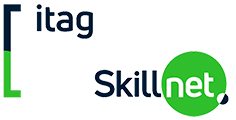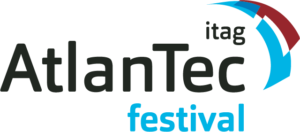Project Management
The Project Management Institute (PMI) sponsors a project management accreditation programme. The purpose and goal of this programme is the development, maintenance, evaluation, promotion and administration of a rigorous professional certification credential of the highest calibre. It is called the Project Management Professional (PMP®).
To be eligible for the PMP® Credential delegates must first meet general educational, specific project management educational and project management experience requirements and agree to adhere to a code of ethics and professional conduct.
The final step to becoming a PMP® is passing a multiple-choice examination1 designed to objectively assess and measure an individual’s ability to apply project management knowledge in the following five domains: initiating the project, planning the project, executing the project, monitoring and controlling the project, closing the project. This computer-based examination is administered globally by Prometric.
The 5-day course is designed to assist delegates to prepare for and take the PMP® Examination. The course is normally delivered through a block of 4 ‘Learning Days’ during which the delegates can begin or continue the accreditation application. The application is an on-line process and takes place outside course hours. After the 4th day delegates can complete – and if ready – submit their application. Once the application is accepted the examination can then be scheduled on-line through Prometric.
The 5th day is dedicated to revision prior to sitting the exam.
Tuesday 25th & Wednesday 26th September
Tuesday 2nd & 3rd October
Friday 12th October
Day 1 to Day 4
Introduction
Module 1
Course outline
* PMP® Certification – How to apply for the exam
* Exam Structure, Format and Logistics
* Understanding the PMBOK®, Knowledge Areas, Process Groups
* Process Iterations – Inputs, Tools and Techniques, Outputs
Framework
* Project Fundamentals
* The Project Environment and Context
* Project Stakeholders and the Role of the Project Manager
* The Project Lifecycle
* Project Success Factors
Module 2
Project Integration Management
* Develop Project Charter
* Develop Project Management Plan
* Direct and Manage Project Work
* Manage Project Knowledge
* Monitor and Control Project Work
* Perform Integrated Change Control
* Close Project or Phase
Project Scope Management
* Plan Scope Management
* Collect Requirements
* Define Scope
* Create WBS
* Validate Scope
* Control Scope
Module 3
Project Schedule Management
* Plan Schedule Management
* Define Activities
* Sequence Activities
* Estimate Activity Durations
* Develop Schedule
* Control Schedule
o Project Cost Management
* Plan Cost Management
* Estimate Costs
* Determine Budget
* Control Costs
Module 4
Project Quality Management
* Plan Quality Management
* Manage Quality
* Control Quality
Project Resource Management
* Plan Resource Management
* Estimate Activity Resources
* Acquire Resources
* Develop Team
* Manage Team
Module 5
Project Communications Management
* Plan Communications Management
* Manage Communications
* Monitor Communications
Project Risk Management
* Plan Risk Management
* Identify Risks
* Perform Qualitative Risk Analysis
* Perform Quantitative Risk Analysis
* Plan Risk Responses
* Implement Risk Responses
* Monitor Risks
* Module 6
Project Procurement Management
* Plan Procurement Management
* Conduct Procurements
* Control Procurements
Project Stakeholder Management
* Identify Stakeholders
* Plan Stakeholder Engagement
* Manage Stakeholder Engagement
* Monitor Stakeholder Engagement
Code of Ethics and Professional Conduct
* Responsibility, Respect, Fairness, Honesty
Day 5
* Module 7
o Exam Tips and Logistics
o Trial Exam, Scoring and Analysis
o Revision
o Course Closure
for more information please email dtimoney@itag.ie





